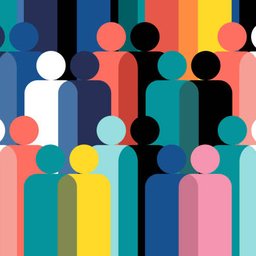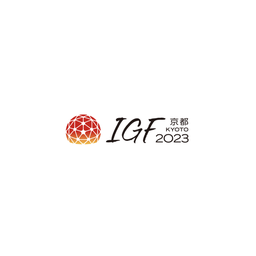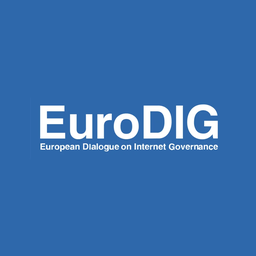RightsCon is a huge conference focused on human rights in the digital age. There were 250+ sessions ranging from content governance and data protection, to election integrity and democratic stability, to protest and political change. While it's not possible to offer comprehensive coverage, in this blog I wanted to give you a glimpse into some of the discussions and hopefully pique your interest. Think about joining in personally next time - these discussions could benefit from more voices from the technical community!
Why read about human rights?
The technical community is generally well versed in the Internet's infrastructure and how it works, but its voice is often noticeably absent from discussions about what happens on the Internet. The logic goes that you might use a knife to chop salad or to stab someone, but this is not the knife manufacturer's responsibility. If only it were that simple. Often the underlying technology determines how it is used (or misused). By staying out of these discussions we risk ill-informed policymakers enacting technically-unworkable or undesirable solutions. That's why the RIPE NCC tries to stay on top of Internet governance issues and make you aware of the current debates. With this in mind, I've summarised some of my impressions from the week-long RightsCon below. I’ve also included speakers' names and affiliations. Most were new for me - maybe for you too - and you might be curious to look some of them up.
Governments
During the course of the week, we covered many global topics. Is access to the Internet a human right? Should it be controlled by the state? Brett Solomon, Executive Director for Access Now, highlighted increasing problems in many countries around Internet shutdowns and the devastating impact these have on our economic, social and political life. He spoke of the Internet as a medium prone to destroying democracy and enabling autocracy.
A joint statement signed by six U.N. Special Rapporteurs attending RightsCon warned of closing digital space amid the COVID-19 pandemic: “States continue to leverage the Internet and digital technologies to quell dissent, engage in unlawful surveillance, and strip individuals of their capacity for collective action, both online and off. We are deeply concerned that such patterns of abuse have accelerated under the exigencies of the global pandemic”.
Offering a government view, Costa Rica's Minister of Science, Technology, and Telecommunications, Paola Vega Castillo, explained how the pandemic had revealed important legal and procedural gaps in how we manage technology. It is a herculean task for even the best-intentioned governments to work out an effective strategy. She identified a need for legal experts with a good understanding of technical issues, as well as technical experts with a good understanding of legal issues.
Fairness and equality
The notion that the Internet (and technology more generally) is neutral or objective now rightfully belongs in the past. Tendayi Achiume, U.N. Special Rapporteur on racism, racial discrimination, xenophobia, and related intolerance explained that technology reproduces and in many cases reinforces injustice and discrimination from the offline world. Her recently-published report found that while in some cases discrimination was direct and explicitly motivated by intolerance or prejudice, mostly this was not the result of explicit intent. Rather, this came from the different effects technology had on groups according to their gender, race, ethnicity or national origin (think of facial recognition not working well for women or people of colour). She called on online platforms to own their social impact - having constructed their worlds based on free speech, unchecked by other norms like justice and fairness. She cautioned that they made money in a way that was compatible with discrimination and sometimes they benefited from this.
Access
Technology acts as a multiplier for existing inequalities in another, more fundamental way. Fabrizio Hochschild Drummond, Special Adviser of the UN Secretary-General, explained that not having access to the Internet was disproportionately affecting people who were already disadvantaged on the basis of other characteristics (gender, social status, race, etc.) He criticised the absence of global policies supporting affordable access for all. He also called for a massive capacity-building effort to make full use of the Internet (e.g. chatting and sharing memes vs (also) accessing knowledge, news, commercial activity, etc.)
The COVID pandemic has pushed many people online - some for the first time. Applications in healthcare, education and finance in particular were the only chance for many to continue their everyday activities. This was a life-saver, but not for those without access. Antonia Urrejola Noguera, IACHR Rapporteur on the rights of indigenous peoples, explained that the access gap became even more evident when some children could continue classes online while others had to walk to a nearby mountain to seek connectivity, and for others this was not an option at all. Lacina Koné, CEO of Smart Africa, explained that to stimulate this development some countries needed lower tax on ICT services. He spoke of the urgency to interconnect countries in Africa with high speed terrestrial fiber or satellite as a back up, to make the service affordable by aggregating Internet bandwidth purchases, and lastly focus on supporting an affordable last mile solution. Some estimates expect as much as a seven-fold increase in traffic in some countries. As a general rule, having a solid and stable regulatory environment that stimulated investment was paramount to accessing the funds needed to get people online.
Misinformation and polarisation
Maria Ressa, journalist and Chief Executive Officer of Rappler, spoke of the plight of journalists - with multiple investigations launched all over the world into the far-reaching effects of the weaponisation of social media, where it all started. Facts were now delivered via a system that could be manipulated. Recommending to friends of friends - built into this design was the ability to polarise societies and tear them apart. Hateful lies spread faster than boring facts. Technology facilitated the worst of human nature. She highlighted the irony of platforms complaining that they didn't want to be the ones to determine what should be cencored, while they were fine with building algorithms which determined what information was presented to people, what information should spread fast and what should not.
Data ownership
What’s the path to achieving true agency over data? Is it ownership or rights? Is buying and selling data the solution to asymmetries of power? Martin Tisné, Managing Director of Luminate, explained that data ownership had individual, group and societal impacts. We can imagine a spectrum, with pure private ownership where people can keep/sell their data with minimum constraints on one end, and data as a common public good on the other. Where is the right balance?
Some food for thought:
- We are more impacted by other people's data than our own. If you chose not to share your data, that doesn't mean other people's data won't be pulled in, analysed and end up affecting your life.
- Is it appropriate to put data ownership responsibilities on the individual? This is a complex matter and, as per the first point, not everyone will take all of the far-reaching impacts into consideration. Consider that we are not in charge of testing whether our tap water is drinkable or that our medication is safe - there are agencies to regulate this.
- What exactly is the value of personal data? Following the point above, we'd never be able to bargain effectively on an individual basis to get what our data is really worth. But also, even on a societal level, we cannot attribute monetary value to data since we don't value things unless they are treated as commodities. Of course we value clean water and clean air, but they don't have a market value. Do we really want to treat data as a commodity?
- There is also a fundamental concern about equality and inequality. Data ownership will reinforce existing power dynamics. Imagine a world where an unemployed person has no option but to sell their data for their next meal, which is later used against them, throwing them in an unending downward spiral.
- And let's not forget that a pure data ownership model will create powerful interest groups that skew it towards profit, rather than towards the public good.

After hearing all the pros and cons, most session participants opted for the familiar Facebook relationship status: "It's complicated!"
Conclusion
Zeid Ra'ad Al Hussein, Former UN High Commissioner for Human Rights, had some very inspiring words at the end of the summit. When asked whether UN institutions would cope in the digital age, he replied that the UN was as pathetic and as great as the world itself. It was a reflection of the progress that individual member states made. He also emphasised that single activists could achieve amazing things.
A society-polarising, democracy-destroying monster or a priceless information-dispenser and a life-saver in times of crisis? Yes. The Internet is all of that and more; it's a powerful tool and what we do with it depends on our will to agree on global norms. Questions of human rights should concern all of us, not just the experts. If we let go of our fundamental principles now, it might be impossible for future generations to reclaim them. If you grow up without the concept of privacy, you might not value it, let alone start fighting for it. So we are at a very critical point in time, when important debates are taking place that will determine not just how we live, but also how future generations will live in the years to come.





Comments 0
The comments section is closed for articles published more than a year ago. If you'd like to inform us of any issues, please contact us.